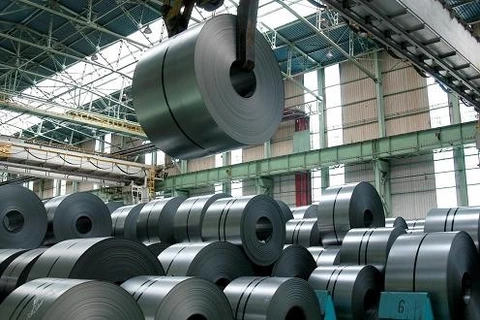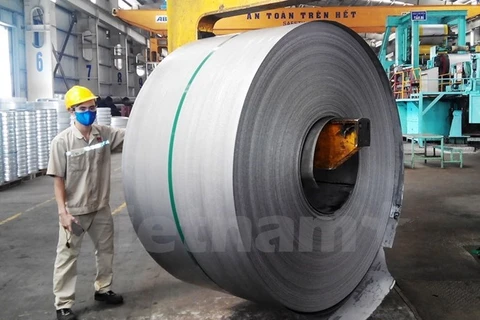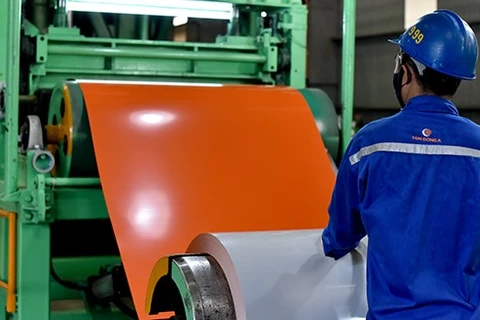Hanoi (VNA) - Because the export price of refined iron ore is 200 times more expensive than that of raw iron ore, reducing the export tax on raw iron ore is unreasonable and will discourage investments in ore sorting technology, the Ministry of Finance (MoF) has concluded.
Due to the decreasing domestic demand for iron ore, domestic iron mines have a surplus inventory. Therefore, the Ministry of Industry and Trade (MoIT) proposed the Prime Minister to allow the export of iron ore inventory, limonite iron and magnetite iron ore to remove difficulties for enterprises.
The exports will last until the end of 2017.
The MoIT also proposed the reduction of export taxes on high quality iron ore, if this product is allowed to be exported.
The MoF said that the export tax on iron ore and refined iron ore is 40 percent - equal to the ceiling rate set by the National Assembly.
In order to encourage enterprises to invest in high-grade iron ore production, the MoF proposed a detailed plan for specific tariff for processed iron ore, with export tariffs lower than 40 percent.
The high export tax rates on raw or simple mineral resources is designed to limit the export of mineral resources.
The total capacity of licensed iron ore mines is about 13 million tonnes per year, reported the MoIT. Domestic blast furnaces are mostly small in size and large in fuel consumption, leading to inefficient operation. Therefore, they have stopped production or are operating under capacity.
The efficient blast furnaces have a combined capacity of 2.6 million tonnes of steel per year, using about 4.6 million tonnes of iron ore per year.
Iron ore is mainly exploited in the northern mountainous areas, with difficult exploitation conditions, high transport costs and low ore quality, leading to high production costs.
When the global price of iron ore fell sharply last year, Hoa Phat Steel Joint Stock Company shifted to using imported ore with a volume of over one million tonne instead of using domestic iron ore.-VNA























